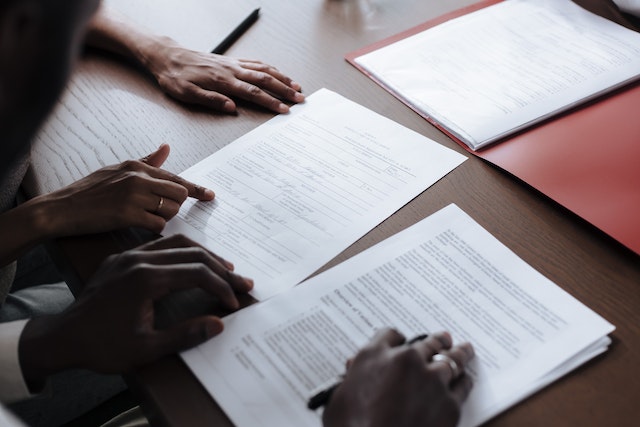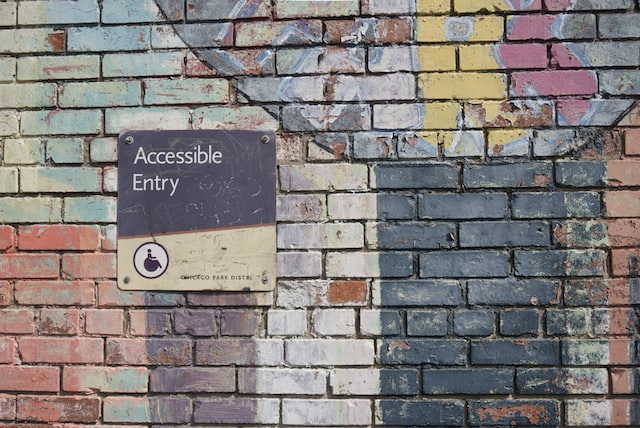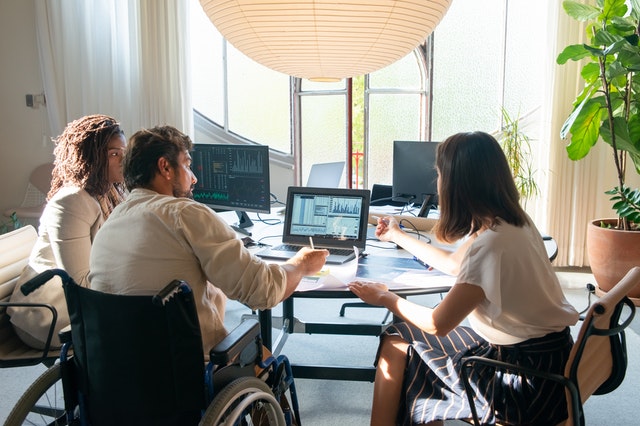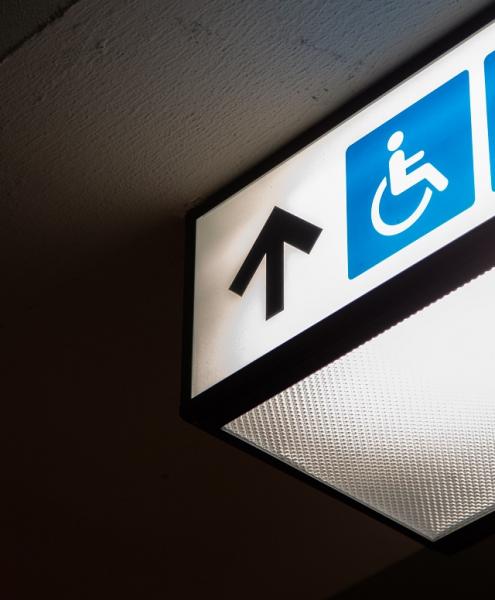2023 International Day of Persons with Disabilities, new services and resources
Tue 12 Dec 2023
December 3 marked the United Nations International Day of Persons with Disabilities. In this news story we highlight new services, a position paper from the Family Violence Death Review and a new roadmap for a violence free future for disabled people.
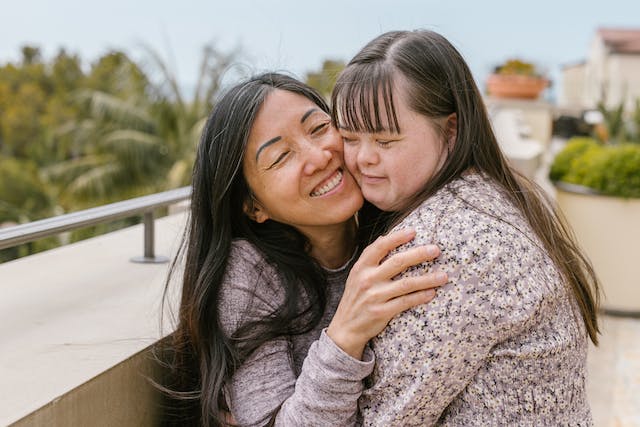
UN International Day of Persons with Disabilities
The International Day of Persons with Disabilities (IDPD) aims to promote an understanding of disability issues and mobilise support for the dignity, rights and wellbeing of disabled people. Aotearoa disability advocate Robyn Hunt provides background in her article on The D*List, The history and hijacking of disability day - and what we're doing to claim it back. The D*List is an independent and disability-led social change movement in Aotearoa. The D*List interviewed Kaihautū Tika Hauātanga Disability Rights Commissioner Prudence Walker and other disability rights activists about Disability Pride for IDPD.
Whaikaha — Ministry of Disabled People said while IDPD
"...is about promoting understanding of disability issues and mobilising support for the rights of disabled people, we also recognise that Aotearoa needs to do better for disabled people, tāngata whaikaha Māori, whānau, and families. In partnership with Māori and the community, we are working on transforming the disability support system using an Enabling Good Lives approach."
Learn more about Enabling Good Lives and system transformation.
Roadmap for a violence and abuse free Aotearoa for disabled people
Te Kāhui Tika Tangata | Human Rights Commission has published A Roadmap for a violence and abuse free future for disabled people in Aotearoa (2023). It is an evidence-based roadmap for system change that reflects a human rights and te Tiriti o Waitangi approach. It is designed to prompt action by decision-makers and people who can influence change. The 2-page road map covers why take action, what needs to change, who needs to act, how to do it, key facts and tāngata whaikaha Māori and how to apply a Te Tiriti approach. It is based on the key points and recommended actions from 2 reports about violence and abuse experienced by tāngata whaikaha Māori and disabled people that were published by Te Kāhui Tika Tangata in 2021. The roadmap is available in te reo Māori and alternate formats.
Te Kāhui Tika Tangata launched the Lets Go There Together campaign to highlight urgent human rights needs in Aotearoa ahead of the 75th anniversary of the Universal Declaration of Human Rights. The 6 urgent human rights needs include the rights of disabled people, along with Te Tiriti o Waitangi, Indigenous people's rights, the gender and ethnic pay gap, the right to a decent home and Rainbow rights.
Family Violence Death Review position paper on adults at risk
The Family Violence Death Review Committee (FVDRC) published a position paper in August 2023 on Responding to adults at risk who need care and support and who are experiencing family violence. It gives an overview of the issues associated with (mis)identifying adults at risk who need care and support and who are experiencing family violence. It highlights the need to look carefully at situations where the capacity, capability and wellbeing of both the carer and the adult at risk are in question. It also highlights the limitations of current approaches and states that:
"Safeguarding adults from abuse cannot be achieved by individuals or individual agencies acting alone. Safety for adults at risk requires collective action. Agencies need to work alongside the adult and their family or whānau to provide support and services that embody a duty to care and to supplement this caring with action."
The paper explains that safeguarding:
"...is an interagency approach to reporting, investigating and responding to alleged or identified family harm and other forms of abuse, neglect or harm for adults at risk.
The threshold for statutory intervention is high and often does not occur until the adult at risk has been exposed to multiple risks over time. As a result, individual agencies cannot address the immediate and holistic needs of the adult and their family or whānau.
Protection for adults at risk requires a framework that supports different agencies working together. Along with elder abuse and neglect, abuse of adults aged under 65 years needs to be recognised as a form of family violence. This requires a whole-of-system response, integrating family violence responses with adult safeguarding responses."
The position paper draws on the duty to care concept outlined by the FVDRC's Seventh report: A duty to care | Pūrongo tuawhitu: Me manaaki te tangata.
For more updates from the Family violence mortality review, see the first national mortality review pānui from the National Mortality Review Committee and National Mortality Review Function Management Group.
Whaikaha announces new services, related updates
Whaikaha has announced 2 new services: 1) Growing Voice and Safety – People for Us and 2) Growing Voice and Safety – Assisting Change. The services aim to increase the focus on the voice, good lives and human rights of disabled people and tāngata whaikaha Māori, while also reducing the risk of neglect and abuse in disability support services funded by Whaikaha.
People for Us will provide a way for Whaikaha to hear feedback from disabled people and tāngata whaikaha Māori and to learn what concerns, issues and trends need to be addressed in disability support services. Assisting Change will be an intensive advisory service for providers who have quality issues and who do not have the capacity and capability to make improvements. For details about the new services see Growing Voice and Safety.
Whaikaha will commission external organisations to deliver these services. The registration of interest (ROI) to develop and deliver the People for Us service is currently open on GETS (RFx ID: 28535370). Registrations close 9 February 2024. For questions about the services or the ROI email community_admin@whaikaha.govt.nz.
Additional funding to support transformation of the disability support system was announced earlier this year in September 2023. This funding provides for improved safeguarding for people who are at risk of abuse as well as extending Enabling Good Lives to historically under-served communities, transforming existing disability support service, building community capability for partnership, and system infrastructure. Whaikaha announced in December the 5 organisations that will receive funding to support disability leadership through community-led initiatives.
The December Whaikaha Newsletter said the Disability Action Plan is currently being reviewed. A 2024-2028 Plan will be developed to deliver the eight outcomes in the Disability Strategy. To have a say about what actions government agencies could include in the 2024-2028 Disability Action Plan, email your name and contact details to Whaikaha at partnershipsandstewardship@whaikaha.govt.nz and put Disability Action Plan in the subject line.
Related Aotearoa news
Registration is now open for the 2024 International Traumatic Brain Injury Conference - The Hidden Cost of Violence. Traumatic Brain Injuries (TBI) are a common consequence of family violence. In many cases of family violence, TBIs are severe and may result in long-term physical, cognitive and behavioural impairments. Many sessions specifically address the experiences of and intersection of services for disabled, whaikaha Māori and those with lived experience of TBI and intimate partner violence. The conference is taking place 21-22 March 2024 in Whanganui.
Te Aka Matua o te Ture | the Law Commission is reviewing the law related to adult decision-making capacity this includes how the law should respond when an adult's ability to make decisions is affected. The Law Commission completed the first public consultation in March 2023. The Law Commission's second issues paper and public consultation has been moved to early 2024. For background information see our news story on the first consultation.
Related international news
Australia-based Women with Disabilities Victoria published resources related to preventing violence against women with disabilities. The Resistance and Backlash to Gender and Disability Inclusive Practice (2023) is a resource to help identify, respond to and support the prevention of resistance and backlash in the workplace when doing violence prevention work. The Taking Action Guide (2023) has information to increase awareness, skills, knowledge, and confidence to implement prevention strategies in the social sector, disability sector, local government, and prevention programmes. More resources are available including mini webinars and videos.
The Canada-based Learning Network in partnership with the DisAbled Women’s Network of Canada (DAWN) published Addressing Sexual Violence and Promoting the Sexual Rights of Women Labelled with Intellectual Disabilities (2023). It explores sexual violence faced by women labelled with intellectual disabilities through an intersectional, strengths-based approach. It focuses on removing structural barriers to supports, justice, and sexual freedom.
The United Nations Population Fund (UNFPA) Asia and the Pacific Regional Office published the report Disability Inclusion in Gender-Based Violence Programming: Promising Practices and Innovative Approaches from UNFPA Asia and the Pacific Country Offices (2023). The report summarises learnings from work to develop tools to strengthen disability inclusion in gender-based violence programmes. This includes a Tip-sheet on Disability Inclusion in GBV Programming and a GBV and Disability Inclusion Assessment Tool.
UN Women has published an overview of their approach to disability inclusion and intersectionality. It is a multi-pronged approach that includes providing normative guidance, integrated policy advice, operational support, and technical assistance for programme and capacity-development. The approach aims to ensure that initiatives are gender-responsive and inclusive of the rights of disabled people.
Related media
Disability support needs Pacific approach says advocacy group, PMN, 19.12.2023
Organisation slammed after 'inappropriate' restraint of disabled man, One News, 11.12.2023
Sliding backwards on human rights, RNZ, 11.12.2023
Parenting: New podcast aims to help keep disabled kids safe, RNZ, 30.11.2023
Kiwis treated under compulsory care laws hits record high, Newsroom, 13.10.2023
Image: RDNE Stock project on Pexels




